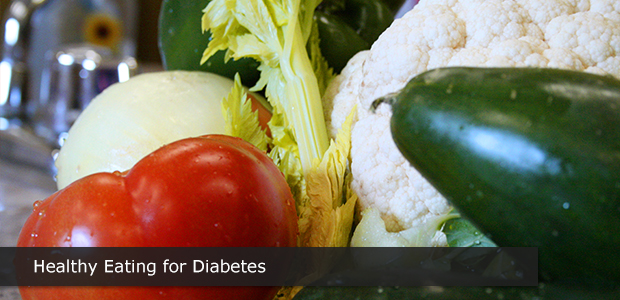Healthy Eating for Diabetes

I live with Type 1 diabetes, and work with young adults with diabetes as well. No matter your type of diabetes, good nutrition plays an integral role in managing your condition. Nutrition is also hugely important for people without diabetes – in prevention and overall good health for life.
November is National Diabetes Awareness Month, and the role of nutrition in managing diabetes is a topic I am passionate about.
I immediately notice the impact of good nutrition on managing my diabetes. If I don’t eat a balanced meal, don’t time my meals right, or spend all afternoon snacking, I notice right away because my blood sugar is harder to manage. I avoid eating carbohydrate-heavy meals (especially sweets and treats) unless I’ve been hiking or skiing all day. The activity helps my body process carbs quickly and without as much insulin as usual which means fewer blood sugar spikes. If I snack all afternoon, my blood sugar doesn’t have time to return to normal in between snacks, so there is a good chance that my numbers are higher than normal for an extended period of time – no good on the long term.
For those of us with diabetes, healthy eating reduces our risk of complications, increases our energy, and helps us control our blood glucose levels. Regardless of what kind of diabetes you have, or if you have diabetes at all, the messages of health eating can apply to anyone. It’s always a good idea to work on your healthy eating habits.
What does healthy eating look like? I have three very simple guidelines for healthy eating:
- Eat things that grow, and eat things that have a short list of ingredients. Fruits, vegetables, animal products and whole grains that you cook yourself make healthy eating a breeze.
- Create the perfect plate. A balanced meal is a healthy meal. One quarter of your plate should be filled with a protein, one-quarter grain or starch, and the rest can be filled with unlimited vegetables (be aware of veggies high in starch such as potatoes, winter squash, yams, and corn that will impact your blood sugar).
- Pick things you like. My salad intake drops off dramatically when winter rolls around. Instead, I try to pick high-veggie soups, make hot stir-fry, or curries. If you really dislike green peppers, don’t force yourself to eat them – instead, pick other things you like and incorporate those into your meals.
Regardless of whether or not you have diabetes, or what kind of diabetes you have, these guidelines are a good starting point for improving your healthy eating habits! What are your best healthy eating tips?










